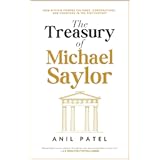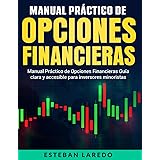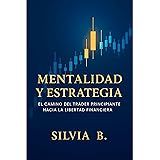Are you a crypto investor navigating the complex world of ever-evolving regulations, particularly concerning Know Your Customer (KYC) requirements and tax obligations? As discussed in the insightful video above with Rafael from Wealthy Expat, the landscape for digital asset holders, especially U.S. citizens, is becoming increasingly intricate.
Proactive planning is not merely advisable; it is quickly becoming essential for those aiming to protect their crypto profits and maintain financial sovereignty. This article delves deeper into the strategies for achieving a degree of financial freedom in the face of tightening controls, expanding upon the critical points raised regarding KYC-free crypto, international residency, and second citizenship options.
Understanding the Shifting Sands of Crypto KYC and Taxation
The regulatory environment surrounding digital assets is undeniably tightening, with governments worldwide seeking greater control and transparency. For US citizens, this trend presents particular challenges, as the Internal Revenue Service (IRS) is actively pursuing ways to monitor and tax crypto transactions, even those occurring on decentralized platforms.
It is now being reported that payments exceeding $10,000 in crypto must be reported, regardless of where the recipient resides. This policy move illustrates a concerted effort to extend regulatory reach beyond traditional centralized exchanges, indicating that the era of completely anonymous crypto transactions is rapidly drawing to a close for many. European Union nations, Canada, and the UK are also observed to be following similar trajectories, with MiCAR regulations in the EU attempting to define the parameters for decentralized entities.
The IRS’s Expanding Scrutiny: What Investors Should Know
The regulatory hammer has already fallen on major players, as exemplified by the actions taken against centralized exchanges like Binance. These moves are perceived by many as part of a broader strategy to exert control over the crypto ecosystem, potentially influencing the very companies that manage Bitcoin ETFs. Therefore, investors are finding it increasingly difficult to avoid governmental oversight, even when utilizing self-custody solutions like Trezor wallets or engaging with decentralized exchanges (DEXs).
While the goal of fully KYC-free crypto may seem elusive under such circumstances, strategic planning can create significant barriers against intrusive government control. The core issue often revolves around the ability to off-ramp crypto into traditional fiat currencies without triggering excessive reporting or taxation. This reality compels many to explore international solutions to safeguard their gains.
Strategic Pathways to Financial Freedom: Residency and Citizenship
In response to these burgeoning restrictions, a primary defense strategy involves establishing legal ties to other jurisdictions. This typically commences with obtaining an alternative ID or a residency permit in a country with more favorable financial regulations.
Several avenues exist for this initial step, each with varying levels of commitment and benefits. The objective is to secure an address and a legal identity outside one’s home country, thereby creating a buffer against domestic financial surveillance and taxation.
Residency by Investment and Alternative IDs
A popular and relatively accessible option for many involves obtaining a Golden Visa. Countries such as Portugal and Spain offer residency permits in exchange for specific investments, providing a pathway to a new tax residency. Similarly, opening a company in Dubai can grant a residency permit, unlocking significant tax advantages due to its zero capital gains tax regime.
-
Dubai: A Crypto-Friendly Hub
Dubai is frequently cited as an optimal first step due to its speed, efficiency, and attractive tax structure. It boasts zero capital gains tax, meaning profits from crypto investments—such as those from Bitcoin purchased at $15,000 and potentially sold at $150,000—would largely be untaxed if one is a Dubai resident. Personal income from consulting or other services can also be tax-free. The emirate’s infrastructure is modern, things operate quickly, and the ecosystem supports crypto payments and off-ramping, making it a viable option for many crypto entrepreneurs and investors.
-
Mexico: North American Gateway
For North Americans, Mexico is an increasingly popular choice. Its residency process is noted for being fast, affordable, and straightforward, particularly for those with financial means. By obtaining Mexican residency, individuals can open local bank accounts and access decentralized exchanges from a jurisdiction that offers greater protection, even while retaining their original citizenship. Mexico also hosts a growing crypto community, making it an attractive destination for networking and support.
-
E-Residency Programs
While not as robust as physical residency, e-residency programs, such as that offered by Palau, provide a digital ID tied to another country. This offers a minimal barrier but may not include benefits like bank accounts, making it a less comprehensive solution compared to full residency.
The Pursuit of a Second Passport: Citizenship by Investment
For those seeking the highest level of financial and personal freedom, a second citizenship and passport are often considered the ultimate goal. This provides an additional nationality, acting as a critical plan B and offering increased flexibility in banking, travel, and personal security. Renunciation of one’s original citizenship, especially US citizenship, then becomes a viable consideration for complete severance from certain tax liabilities.
However, the market for Citizenship by Investment (CBI) programs is dynamic and subject to external pressures. Caribbean nations, historically popular for CBI, are facing increasing scrutiny from larger geopolitical blocs, potentially affecting visa-free travel privileges associated with these passports.
-
Caribbean CBI Options
Programs like Saint Kitts and Nevis have seen significant price increases and extended processing times. Once available for a lower investment and processed within 3-6 months, Saint Kitts now requires an investment of $250,000 and can take 8-10 months due to increased demand and regulatory adjustments. Other options, such as Dominica and Saint Lucia, are currently considered more stable and efficient, with Antigua also being a contender for those primarily seeking a second nationality without necessarily planning to reside there.
-
El Salvador: The Bitcoin Citizenship
El Salvador has made headlines for offering citizenship directly payable in crypto. For an investment of $1 million in Bitcoin or USDT, a passport can reportedly be obtained within six weeks. While this is a substantial sum, it appeals to high-net-worth individuals holding significant crypto assets who desire a direct crypto-to-citizenship pathway.
-
Argentina: An Emerging Option
Argentina presents a compelling case for those willing to commit to a longer residency period. Citizenship can be acquired after approximately two years of residency, and the cost of living is remarkably low. While the country’s economic future, including its potential dollarization, remains a subject of debate, the ease of learning Spanish and the high quality of life for a modest budget make it an attractive prospect for a strong second passport.
Navigating the Renunciation Decision
For US citizens, the decision to renounce citizenship is a profound one, offering a definitive break from the complex tax obligations imposed by the US government on its citizens abroad. This step is often considered after securing a second nationality and establishing tax residency elsewhere. It is a permanent decision that demands careful consideration and strategic planning, including establishing new banking relationships under the new nationality.
While an ID from another country or a second passport might not fully eliminate all US tax obligations if one retains US citizenship, it provides significant leverage and flexibility. The example of a European bank flagging an account for US connections, even when opened with a non-US passport, underscores the persistent reach of US financial regulations. Therefore, renunciation becomes the ultimate step for those seeking absolute detachment from the US tax system.
A Multi-Jurisdictional Strategy for Crypto Wealth Preservation
Ultimately, a diversified, multi-jurisdictional approach is frequently recommended for securing financial freedom in the crypto space. This strategy typically involves a staged process:
-
Establish Initial Residency: Start with a fast and easy residency option like Dubai or Mexico to gain immediate tax benefits and an alternative ID. Dubai offers excellent capital gains tax benefits for crypto, while Mexico provides a comfortable and convenient base for North Americans.
-
Explore Other Crypto-Friendly Regions: Consider other regions that are becoming increasingly welcoming to crypto and offer tax advantages, such as Andorra, Bulgaria, Serbia, Montenegro, parts of Southern Spain, or Portugal. These pockets can offer diverse living environments and further diversification of financial ties.
-
Acquire a Second Passport: Once financial stability and a solid base are established, pursue a second citizenship. Options like Dominica, Saint Lucia, or Antigua offer efficient routes to a backup passport, while Argentina presents a longer-term, value-driven path to a robust nationality.
-
Consider Renunciation: For those seeking a complete break from US tax obligations, renunciation becomes the final, decisive step, undertaken only after a robust international financial and personal infrastructure is firmly in place.
This phased approach allows individuals to adapt to changing geopolitical and regulatory landscapes, ensuring that their crypto wealth is protected and their financial freedom is maximized. It must always be stressed that all steps should be taken legally and with appropriate professional advice.
The journey to securing KYC-free crypto and optimal tax residency for digital assets is not without its complexities. However, with careful planning and a strategic approach, individuals can navigate these challenges and build a resilient financial future. The opportunities in places like Dubai, Mexico, and various CBI programs highlight that solutions are available for those committed to proactive financial management and securing their wealth in the evolving world of digital finance.







